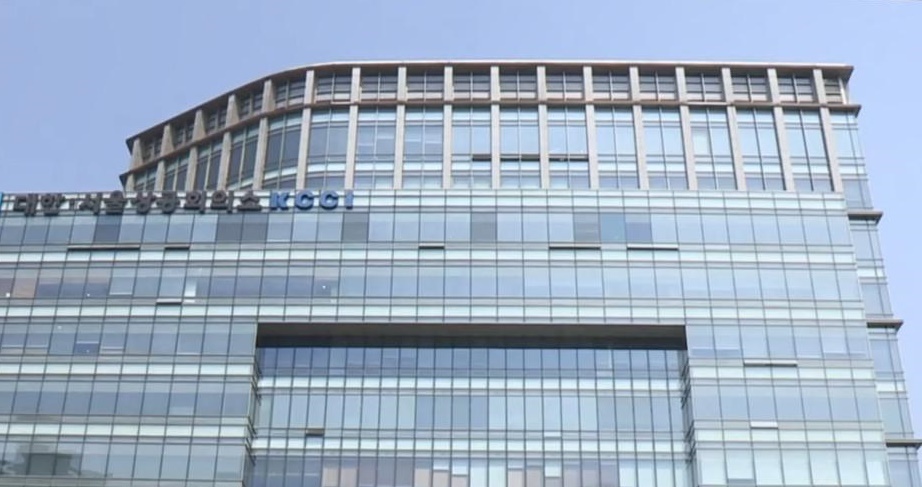 |
Headquarters of the Korea Chamber of Commerce and Industry in Seoul (Yonhap) |
South Korea’s trade minister said on Thursday that the government is poised to cooperate with Eastern European countries in green business, including the development of low carbon energy.
Speaking at the KOREA-V4 Economic Cooperation Forum, Minister for Trade Yoo Myung-hee said the government is ready for economic cooperation with V4 countries -- Poland, Hungry, the Czech Republic and Slovakia -- who are “shifting to renewable energy.”
“Eastern European countries are making efforts to reduce their share of carbon emissions significantly. In this regard, they are to adopt hydrogen energy and shift to nuclear and other renewable energy at the same time,” she said during a speech.
”As a cooperation partner to develop low carbon energy, the government is ready to fulfill its role in identifying agendas for economic cooperation between Korea and V4 and delivering opinions and proposals of our companies.”
Korean companies will receive government support to carry out R&D activities on hydrogen technologies and advance into foreign countries, she added.
Thursday’s event was held jointly by the Korea Chamber of Commerce and Industry and the Ministry of Trade Industry and Energy. Those in attendance included Polish Ambassador Piotr Ostaszewski, Hungarian Ambassador Csoma Mozes, Slovakian Ambassador Jan Kuderjavy, and Czech Ambassador Gustav Slamecka, who discussed their country’s carbon neutral policy.
Woo Tae-hee, executive vice chairman of KCCI, said there is “certainly room for cooperation” with Eastern Europe.
“Samsung SDI injected 1 trillion won to build additional factories in Hungary for EV batteries. In addition, there are chances for Korea to win nuclear power deals in Czech, Poland, etc. Likewise, there will certainly be room for cooperation,” Woo said.
He also said cooperation between the two will provide momentum for the standardization of hydrogen economy in Europe, as key hydrogen economy materials such as carbon fibers, metallic bipolar plates and membranes are currently being developed and manufactured in Korea.
“I believe that cooperation with Eastern European players will provide a momentum to realize the standardization of hydrogen economy in the entire Europe,” he said.
Noh Dong-woon, senior researcher at the Korea Energy Economics Institute, said V4 countries are shifting their energy fundamentals towards renewable energy.
“Poland is the only country among EU member countries to pursue the transition to a low carbon economy, rather than seeking the carbon neutral strategy. However, it announced its plan to greatly reduce the share of coal-fired power generation in the energy mix from 80 percent to 11-28 percent by 2040,” Noh said.
“Hungary, Slovakia, the Czech Republic, and other countries in Eastern Europe support the EU Net-Zero policy and are gradually shifting their energy fundamentals centering on renewable energy and nuclear power,” he added.
By Yim Hyun-su (
hyunsu@heraldcorp.com)








![[Today’s K-pop] Blackpink’s Jennie, Lisa invited to Coachella as solo acts](http://res.heraldm.com/phpwas/restmb_idxmake.php?idx=644&simg=/content/image/2024/11/21/20241121050099_0.jpg)